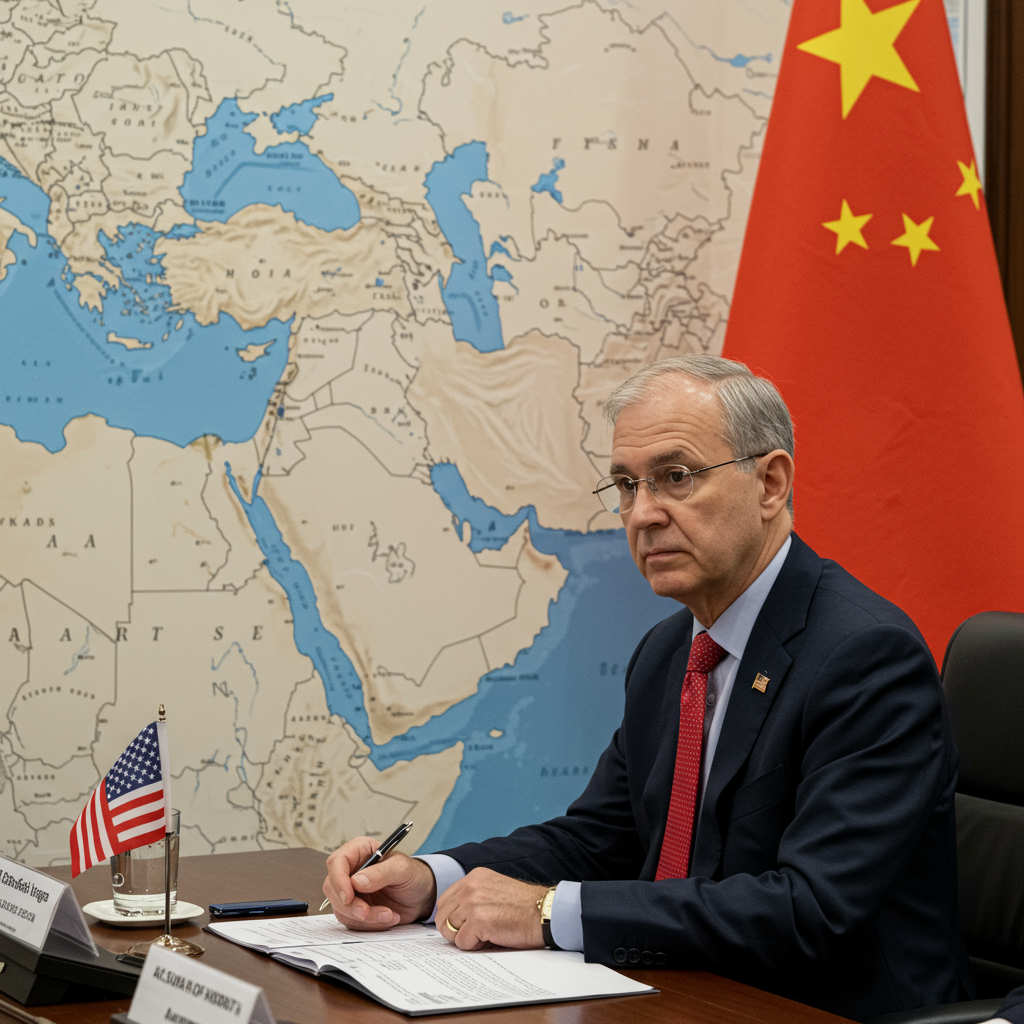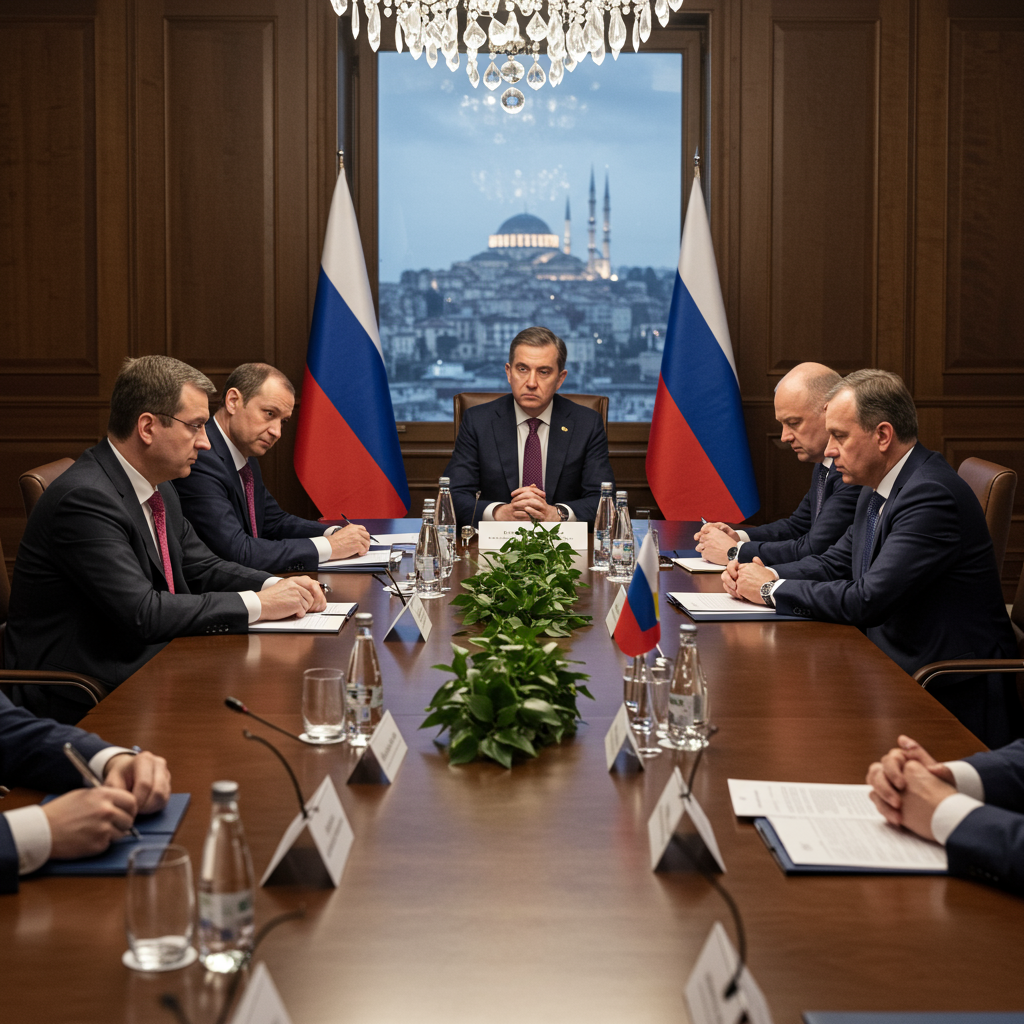Amid Rising Middle East Tensions, US Urges China to Prevent Iran From Blocking Strait of Hormuz
The United States has made a direct appeal to China, a close ally of Iran, asking Beijing to intervene and dissuade Tehran from potentially closing the Strait of Hormuz. This critical global shipping lane is a major choke point for the world’s energy supplies, and any disruption could have severe economic consequences worldwide.
The request comes amidst significantly heightened tensions in the region, following recent US military strikes against Iranian nuclear sites.
Why the US is Calling on China
US Secretary of State Marco Rubio publicly urged the Chinese government to contact Iran about the potential threat to the Strait. Speaking on Fox News, Rubio highlighted China’s significant reliance on the waterway. As the world’s largest buyer of Iranian oil, China heavily depends on the Strait of Hormuz for its energy imports, receiving over 1.8 million barrels per day from Iran last month alone.
Rubio warned that closing the Strait would be a “terrible mistake” and “economic suicide” for Iran itself. He also stressed that while the US “retain[s] options” to deal with such a scenario, it would severely impact the economies of many other countries, potentially worse than the US economy. He characterized any move by Iran to close the strait as a “massive escalation” that would necessitate a response from the US and other nations, though he also noted the US is “prepared to talk” with Iran.
The Strategic Importance of the Strait of Hormuz
Located between the Persian Gulf and the Gulf of Oman, the Strait of Hormuz is a vital maritime artery. Approximately 20% of the world’s daily oil consumption, or about 20 million barrels per day, passes through this narrow channel. It is the primary export route for major Middle Eastern oil and gas producers, including Saudi Arabia, the UAE, Iraq, and Kuwait.
Energy analysts underscore the risks for Iran in threatening this passage. Experts like Vandana Hari suggest Iran has “little to gain and too much to lose,” risking alienating its Gulf neighbors and its key customer, China. Matt Smith from Kpler similarly called closing the Strait a “self-inflicted wound” that would effectively halt Iran’s crucial crude exports to China. The Strait has historically been a flashpoint for regional conflict and remains a critical concern for global energy security.
Iran’s Potential Threat and Escalating Tensions
The US appeal follows a report by Iran’s state-run Press TV, which indicated that the Iranian parliament had considered or approved a measure to close the Strait of Hormuz. However, it’s important to note that the final decision on such a move reportedly rests with Iran’s Supreme National Security Council and ultimately, Supreme Leader Ayatollah Ali Khamenei.
This potential threat is seen as a response to recent US military actions. Over the weekend, the US conducted airstrikes on three key Iranian nuclear facilities, with US officials claiming the strikes “obliterated” Iran’s main nuclear sites using significant ordnance, including bunker-buster bombs and missiles. While Iran initially claimed minimal damage, particularly at the fortified Fordow site, the strikes have dramatically escalated the conflict.
Following the US actions, Iran has vowed to defend itself, with figures like Ebrahim Zolfaqari warning of “heavy consequences” and stating that recent acts had expanded the scope of legitimate targets for Iranian forces. Iran has also reportedly taken action, including launching missiles towards Israel and shooting down an Israeli drone, further highlighting the volatile state of affairs.
Economic Repercussions of a Strait Closure
Any significant disruption to shipping in the Strait of Hormuz would likely send global oil prices skyrocketing. Prices already saw a brief jump following the US strikes on Iranian nuclear sites, with Brent crude reaching a five-month high before stabilizing slightly.
Analysts warn that while the US maintains an “overwhelming defense posture” in the region, equipped with the US Fifth Fleet based in Bahrain to safeguard maritime trade, the risk of severe escalation impacting oil markets remains. Financial institutions project that oil prices could soar above $100 per barrel if the Strait were closed for an extended period. Such a price surge would ripple through the global economy, affecting everything from transportation costs to consumer goods.
China’s Reaction and International Diplomacy
China has reacted critically to the US strikes, stating that the actions have damaged Washington’s credibility and warning that the situation “may go out of control.” China’s UN Ambassador has called for an immediate ceasefire and urged all parties to exercise restraint and avoid “adding fuel to the fire.” An editorial in China’s state newspaper, Global Times, also criticized US involvement for complicating and destabilizing the Middle East.
The crisis has prompted urgent international diplomatic activity, with key meetings scheduled at various levels to discuss containing the volatile situation. As tensions remain high and the threat to a vital global energy route persists, the call for international cooperation, particularly involving key players like China, underscores the widespread concern over potential escalation in the Middle East.



